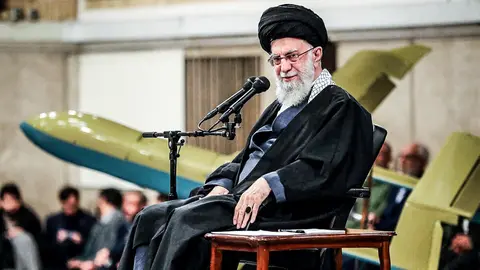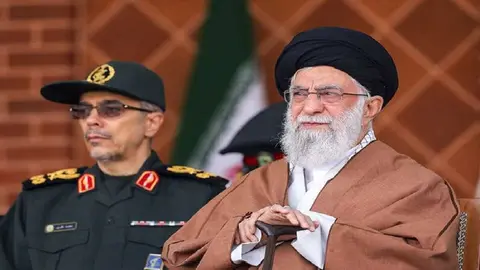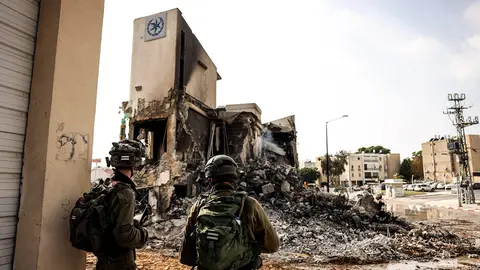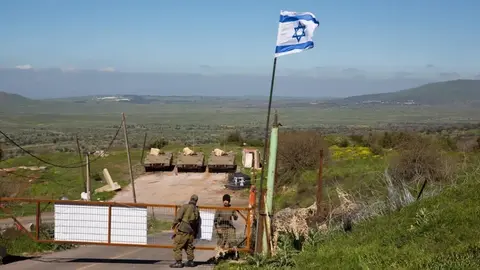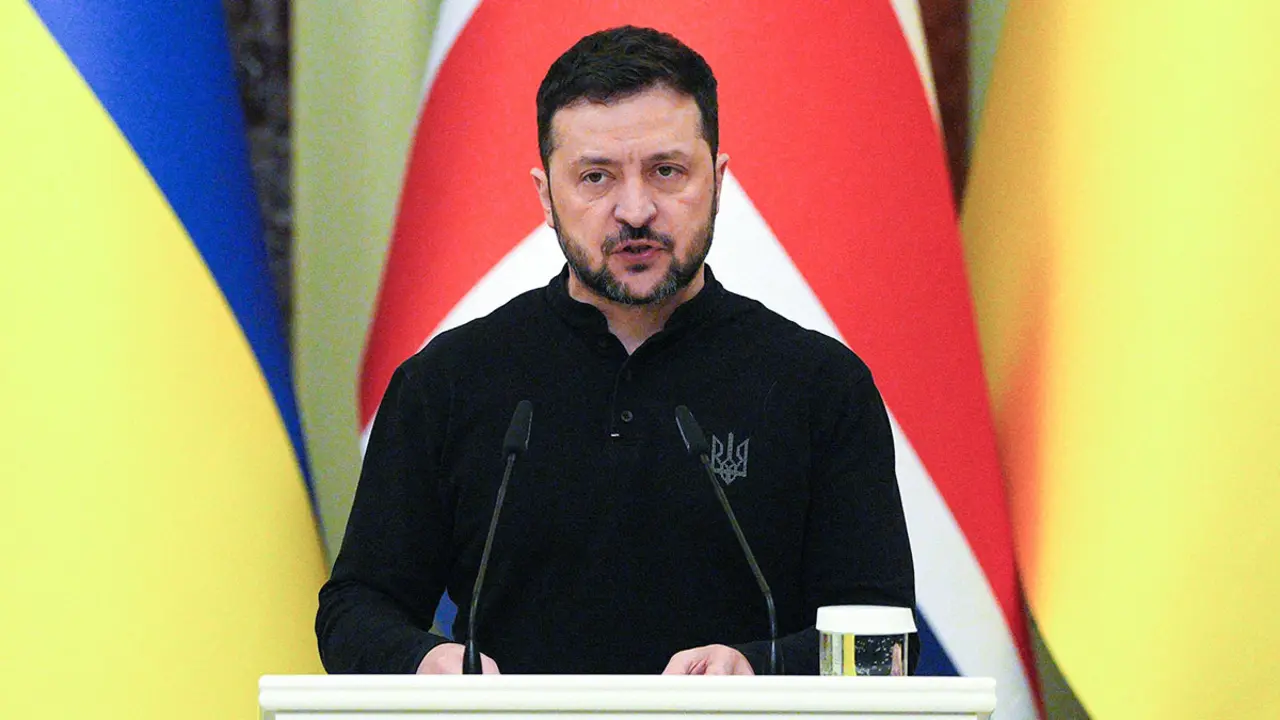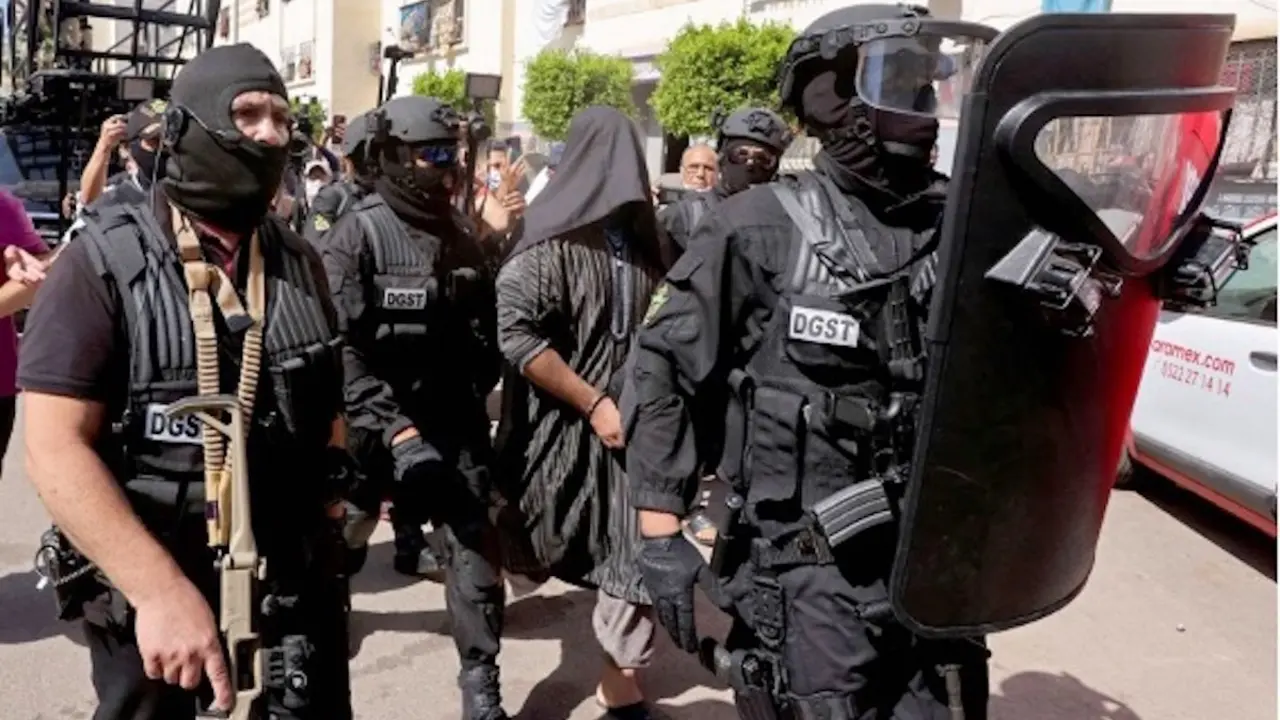Syria becomes a regional battleground
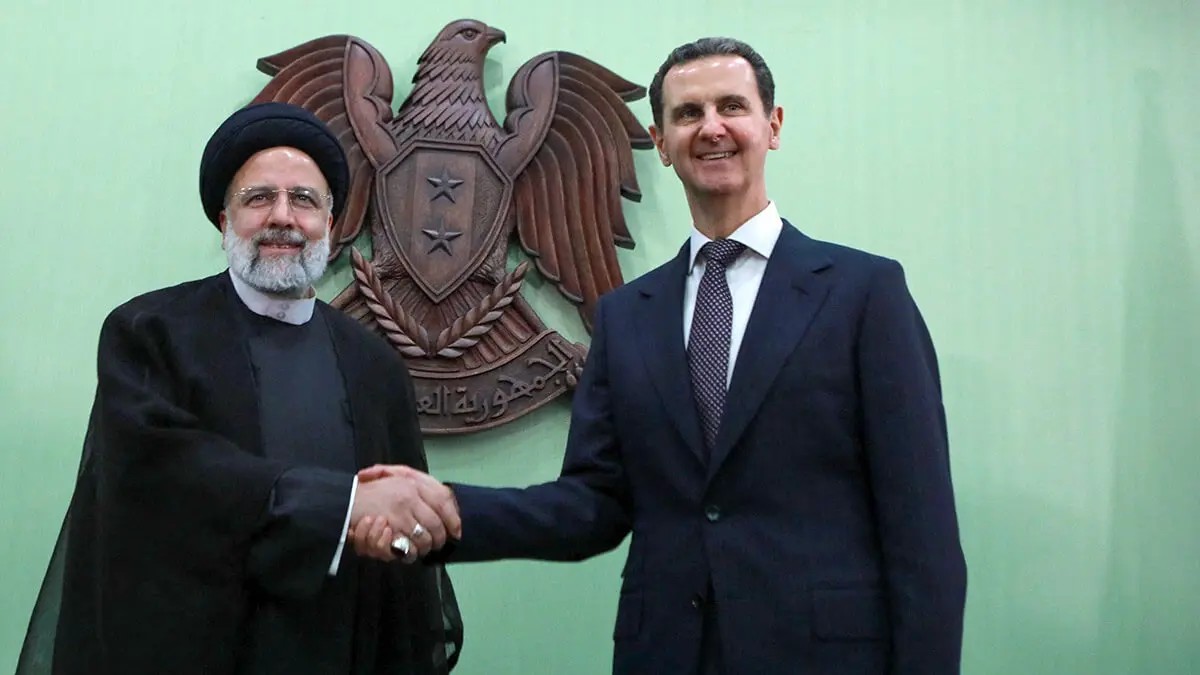
Iran's assistance was key to the Syrian government during the worst moments of the civil war. Tehran's military and economic backing helped Damascus survive, although it is now being dragged into a wider conflict between Iran and its enemies, namely Israel and the US.
The recent Israeli attack on the Iranian consulate in the Syrian capital that left several members of the Revolutionary Guards dead, including a senior Quds Force officer, paves the way for stronger and broader military operations between Israel and Iran.
For the moment, Tehran has already vowed to "punish" Israel for the attack. This threat has been echoed by Hezbollah, the Iranian-backed Lebanese Shia militia that has been launching attacks against northern Israel since October.
BREAKING - #Israel airstrike just now right outside #Iran’s Embassy in #Damascus, #Syria. pic.twitter.com/wpM9MhPjOK
— Charles Lister (@Charles_Lister) April 1, 2024
Meanwhile, Syrian President Bashar al-Assad has closed ranks with Tehran, although he is aware of the dangers to the country of a wider confrontation between Israel and Iran. After years of civil war, Syria is on its way to becoming a battleground in a multilateral war that will deepen the country's crisis.
The Syrian government has long been trying to rebuild the country, while also trying to recover diplomatically at the regional and international level. However, the Iranian presence will cut short all these plans and intensify its isolation. It will also increase Damascus' dependence on Tehran, which, under the pretext of helping Assad achieve security and stability and defeat extremist groups, has secured a permanent presence in the country.
Israeli airstrikes in Syria have increased in recent days. Another round of attacks have been reported in the Damascus area today. pic.twitter.com/8zdhbKPmII
— Joe Truzman (@JoeTruzman) March 31, 2024
The strong Iranian influence in Syria is rejected by part of the population, which is why many Syrians celebrated the Israeli attack on the Iranian consulate on social media. These citizens know that a military escalation between Israel and Iran will severely damage the nation, which is trying to recover after years of violence, war and terrorism.
Likewise, turning Syria into a battleground for Iran to wage its wars outside its territory will favour jihadist groups, as they will see instability as an opportunity to reorganise themselves after the US-led international coalition succeeded in defeating Daesh.
Moreover, Israeli military operations not only eliminate members of Hezbollah or the Iranian Revolutionary Guard, but these attacks often also claim the lives of Syrian soldiers. Similarly, these attacks, targeting Iranian arms and ammunition stockpiles, have also hit Syrian military installations.
Regional tension continues to escalate
The Israeli military operation against the Iranian consulate in Damascus increases tensions in the Middle East amid a very sensitive regional landscape. It also comes on the heels of an attack by pro-Iranian militias from Iraq on an Israeli naval base in Eilat and an Israeli bombing of Hezbollah in the Syrian city of Aleppo.
Since the war between Israel and Hamas began last October, the Israeli army has intensified its operations against the terrorist group's allies. Through these moves, Jerusalem is making clear to Tehran that the ongoing conflict in Gaza is not an impediment to confronting other threats in the region.
Significant airstrikes by #Israel in Aleppo, #Syria tonight with secondary explosions. Comes after #Hezbollah fired heavy Burkan warheads which it says it used against civilian targets for the first time. pic.twitter.com/sYCJSe5qhP
— Jason Brodsky (@JasonMBrodsky) March 29, 2024
Similarly, the so-called Axis of Resistance has also stepped up its attacks on the Jewish state from various directions through Hezbollah, Houthi rebels, pro-Iranian militias in Iraq and Syria, and Hamas, which, months after the war began, continues to launch missiles into southern Israel.
The IDF confirms the drone that struck Eilat last night hit the Navy base, causing damage to the hangar. https://t.co/V3AG9tV7kd pic.twitter.com/0OSpysVPV1
— Emanuel (Mannie) Fabian (@manniefabian) April 1, 2024
These operations are likely to increase as the Iranian authorities have vowed revenge for what is considered the largest attack on Iranian targets since former US President Donald Trump ordered the assassination of Qassem Soleimani in Baghdad in 2020. The strike is also the first to target an Iranian diplomatic building in Syria.
However, according to Israel - which does not usually talk about operations abroad - the building attacked was not a consulate, but a "military building of the Quds forces", a Revolutionary Guard unit responsible for external activities. "According to our intelligence, this is neither a consulate nor an embassy," Israel Defence Forces spokesman Rear Admiral Daniel Hagari told CNN.
Awaiting Iranian response... and possible US intervention
Despite harsh statements by Iranian officials, Tehran's reaction to Israeli attacks on its interests in the Middle East has so far been largely limited to aggressive rhetoric, and few of its threats have materialised into action.
This time, however, due to the gravity of the incident, the Islamic Republic may be forced to respond. Hardline Iranians, such as Jalal Rashidi Kochi, a member of the Iranian parliament, have called for harsh retaliation. Kochi, in particular, has indicated on his social media that Iran should attack the Israeli embassy in Azerbaijan in response.
Supreme Leader Ayatollah Ali Khamenei said the "Zionist regime" would regret this "crime and others". "Our brave men will punish it," Khamenei said.
The evil Zionist regime will be punished by our courageous men.
— Khamenei.ir (@khamenei_ir) April 2, 2024
President Ebrahim Raisi, for his part, stressed that this "heinous crime" will not go unanswered. While providing no further details on possible retaliation, a statement issued by the Supreme National Security Council said that "necessary decisions" had been taken following an emergency meeting held after the attack.
Should Iran decide to respond by attacking Israeli military or diplomatic targets, the US could intervene by launching strikes against pro-Iranian groups in Syria and Iraq that also pose a threat to Washington's interests in the countries.

Further escalation could spell the end of Iran's strategy of limited confrontation with the West through proxies in the region - Iraq, Syria, Lebanon and Yemen - and expand the violence to Iran itself.
For the time being, however, the US has confirmed that it had 'no involvement' in the Damascus attack, and has let Tehran know as much. Despite this, Ali Shamkhani, Khamenei's political adviser, accused Washington on social media of being "directly responsible, whether it was aware of Israel's intention to carry out this attack or not".

